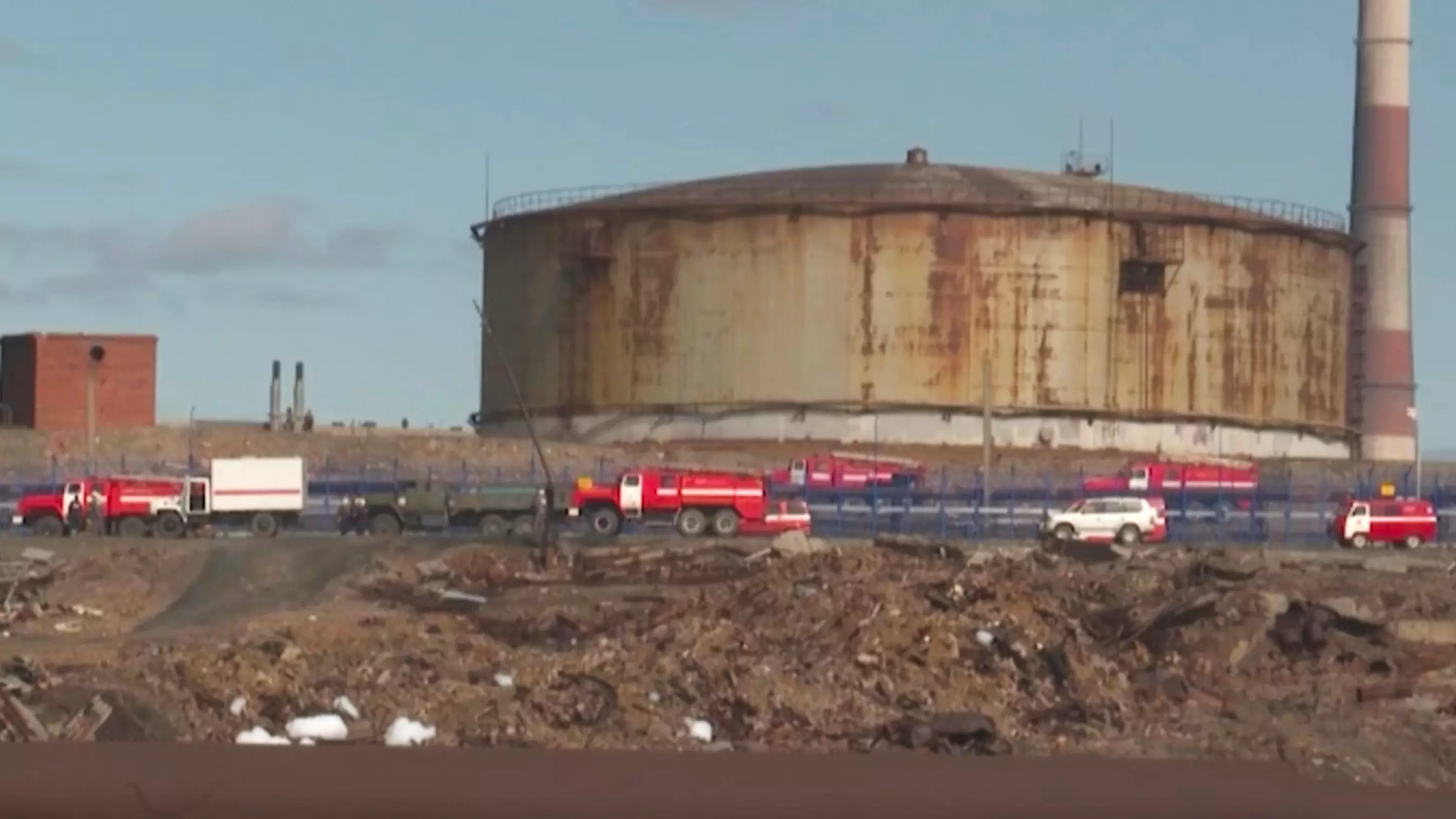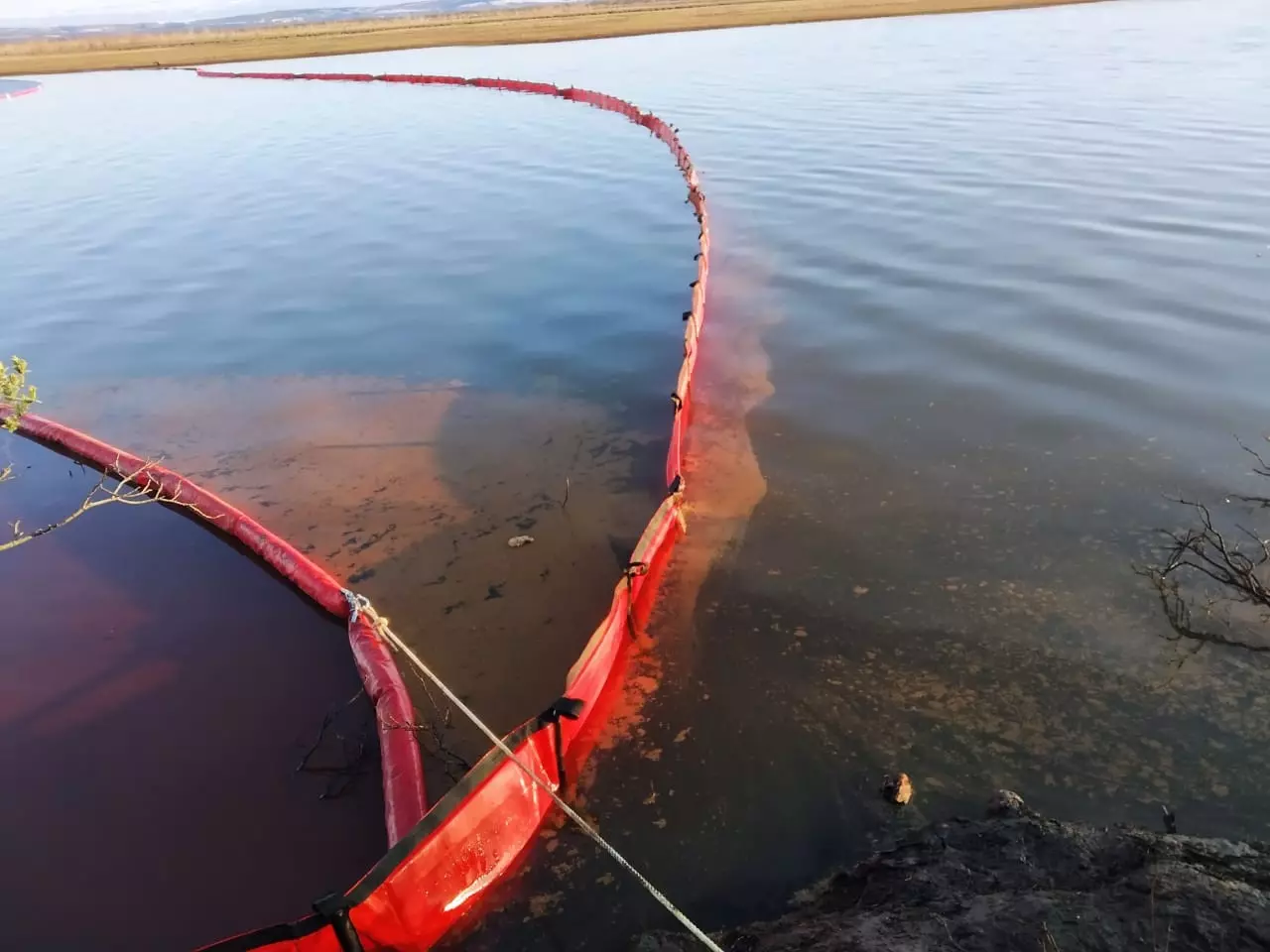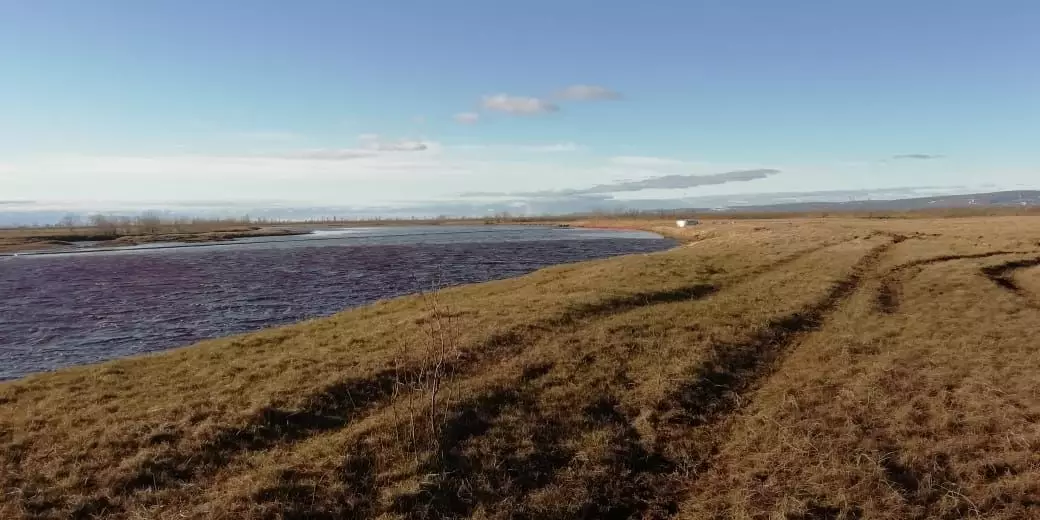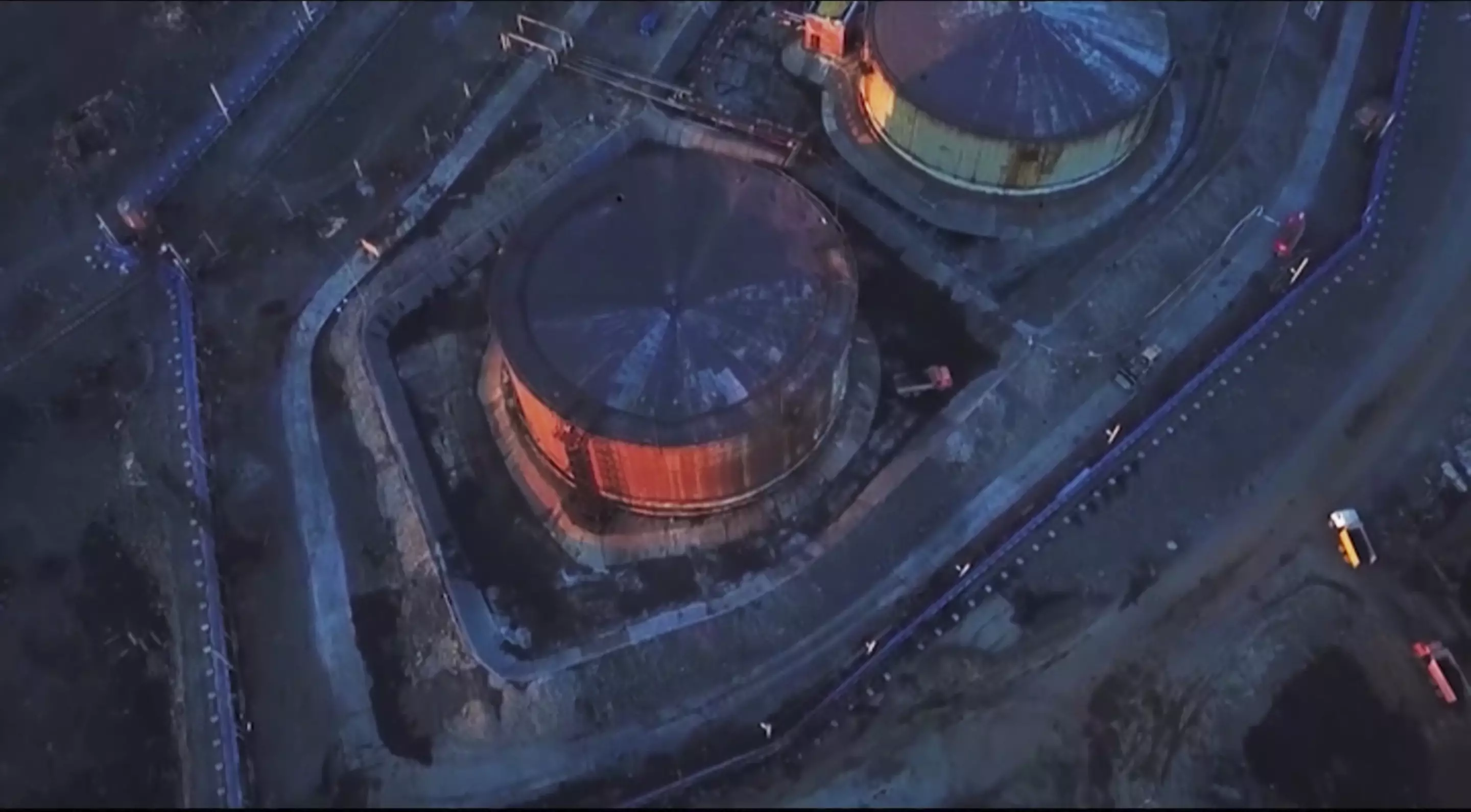
Russian President Vladimir Putin has declared a state of emergency after a huge amount of fuel from a power plant spilled into a river in the Arctic Circle.
The incident occurred last Friday and saw more than 20,000 tonnes of diesel fuel spilled into a river near to the Siberian city of Norislk, which is 1,800 miles northeast of the capital Moscow.
The accident was caused the collapse of a fuel tank at the plant, which is owned by a subsidiary company of Norilsk Nickel, the world's largest producer of nickel and palladium.
In a televised governmental meeting, Mr Putin criticised the head of the company and local government officials for their perceived slow reaction to the environmental catastrophe.

The governor of the region, Alexander Uss, told President Putin in an earlier meeting that they'd only discovered that the incident had occurred because 'alarming information appeared in social media' on Sunday.
Putin asked the subsidiary company chief Sergei Lupin: "Why did government agencies only find out about this two days after the fact?
"Are we going to learn about emergency situations from social media?"
In a statement, Norilsk Nickel said that they'd reported the incident in a 'timely and proper' fashion.

According to Russian state media, the spill has contaminated 350 square kilometres of land. Putin has ordered an investigation into the circumstances that led to the accident, and the manager of the power plant is thought to have been detained already.
Norilsk Nickel has said that it is doing everything possible to clear up the spill, which is affecting the river Ambarnaya, and that specialists have been flown in from Moscow to aid the effort to stop the spread of the fuel.
They expect the fuel to be removed from the river within 10 - 14 days, but added that the extent of the damage can't properly be assessed yet.

The state fisheries agency has declared the incident an 'ecological catastrophe' and said that the damage done could take decades to repair.
The declaration of a state of emergency means that extra forces will be sent to the area in order to aid the clean-up.
When the pillars of the fuel tank collapsed, the leaking oil drifted for about 12km from the accident site, turning the waters of the river red in the process.

An expert from the World Wildlife Fund, Alexei Knizhnikov, told AFP that this accident is thought to be the second largest in modern Russian history in terms of volume.
Featured Image Credit: PATopics: World News, Politics